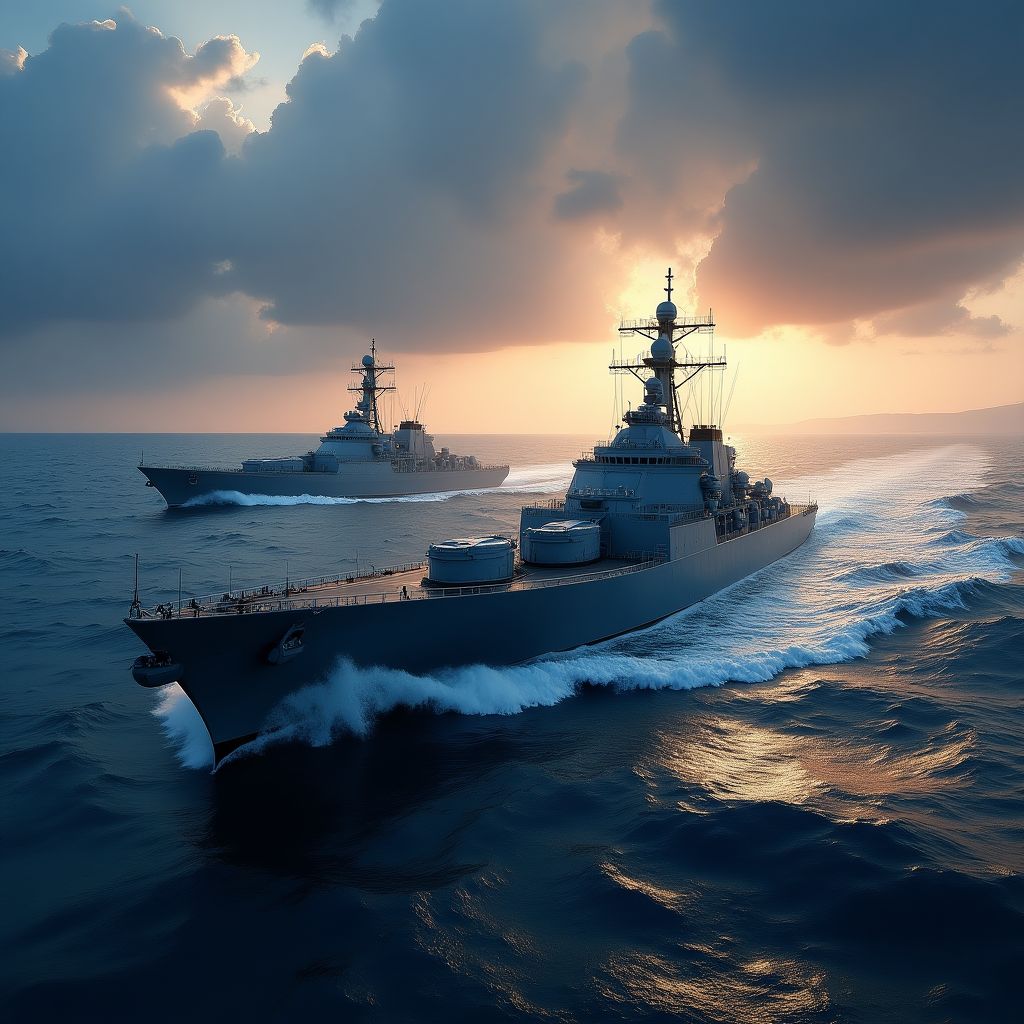The geopolitical chessboard is always bustling with twists and turns, and this latest decision from Russia is a bold opening, reminiscent of an impulsive knight's move. It stirs up emotions of both anxiety and fascination. In a move that could potentially shift the balance of naval power in the Mediterranean, Russia is rumored to be relocating its fleet from Syrian waters to the port of Benghazi in Libya. This audacious decision spotlights the unpredictable nature of international relations and the delicate dance of power that they entail.
The original piece by Peter Zeihan, discussed in a video on his YouTube channel, Zeihan on Geopolitics, provides the backdrop and insights into this compelling tale. Zeihan shares that Russia's current naval operations out of the Syrian ports of Tartus and Latakia have been integral to its military involvement in the Syrian Civil War. Yet, a new reality on the ground has forced Russia's hand to consider a daring relocation to Libya's Benghazi.
The Strategic Retreat from Syria
The situation in Syria has been a complex tapestry, with Russia being a significant player. The civil war has seen Russia's involvement through decisive airstrikes and logistical support, accruing power while grappling with the moral implications of hundreds of thousands of civilian casualties. But tides are changing in Syria, where emerging militant groups now threaten Russian interests. This development nudges the Russians to reconsider their strategic posture in the region.
As Zeihan highlights, unlike a game of Risk where one can simply roll the dice and hope for territory gain, in reality, Russia faces harder limits. The Russian fleet cannot indefinitely linger in potentially hostile Syrian waters. Remaining there could lead to vulnerable exposure to an adversarial environment, a potential tactical error akin to a rook left unprotected.
Navigating the Geopolitical Maze
Considering their options, the Russian fleet's path is fraught with challenges. The Black Sea route remains inaccessible due to war constraints and Treaty of Montreux stipulations, with Turkey – a NATO ally – acting as the gatekeeper. This effectively blocks Russia from re-establishing a route to their home ports via the Turkish Straits, unless they wish to risk a diplomatic skirmish.
The thought of navigating around Europe’s coastlines to reach northern Russian bases also poses significant risks. Imagine a convoy of Russian naval vessels seeking refuge in European ports for refueling. The scenario is reminiscent of an unwelcome guest at a dinner party across NATO-member territories, potentially resulting in the embarrassing impoundment of their ships.
Libya's Benghazi: A New Frontier
Thus, the beacon of opportunity lights up Benghazi, Libya. Far from the structured bowlines of an established port, Benghazi doesn't yet possess the infrastructure necessary to support a full-fledged naval base—resupply, repairs, and overhauls are mere dreams until investments are made in port facilities.
In echoing Zeihan’s observations, Benghazi represents a militaristic bet as bold as betting the farm on a single poker hand. Russia’s presence in the Libyan conflict already treads on diplomatically thin ice, yet their naval movement would amplify tensions and stretch supply lines as thin as gossamer threads in the wrong breeze.
A Gamble Worth The Risk?
Time and again, history has shown us that military engagements extend beyond the stage of immediate opportunities and risks. They often shape socio-political landscapes for generations. Would this risky venture help cement Russia's foothold in the Mediterranean, or will it unravel like a thread pulled from a complex weave, leaving frayed ends and missed chances?
While the move could be perceived as strategic thinking under pressure, the lack of fully realized plans, infrastructure, and potential entanglements with European powers—or outright conflict with NATO—could spell a pathway fraught with pitfalls as deep as a sailor's abyss.
Cultural and Geopolitical Ramifications
On the cultural plane, the shifting location of the Russian fleet reflects broader historical struggles for control and influence in the Mediterranean—a region that has witnessed everything from ancient Roman legions to modern military alliances like NATO. How will this decision resonate among Meditteranean nations, and what cultural undercurrents will it leave in its wake?
The move can also stir rich metaphors of hope and adventure, reminiscent of Odysseus’ voyages and the time-honored dream of unfurling sails towards new lands—albeit in a modern setting where the stakes involve global power dynamics instead of olives and laurels.
Rethinking Assumptions and Habits
All said and done, this potential transition not only challenges Russia’s logistical frameworks but also the broader assumptions by which we dictate international cooperation and conflict. It screams for an introspective reassessment of what nations are willing to stake in the ever-evolving theater of geopolitics.
Let's Chat About It
As spectators in the grand theater of geopolitics, what are your thoughts on Russia's decision to relocate its fleet to Benghazi? Can you spot the turning tactical leaves in this ongoing saga, or the deeper, untouched narratives waiting to unfold? Share your insights, get involved in the discussion, and become part of our iNthacity community as we explore these questions and more in the Shining City on the Web.
Apply to be a permanent resident and engage with us further in the iNthacity community. Like, share, throw in your two cents in the comments below, and join us in the debate!
Wait! There's more...check out our fascinating short story that continues the journey: The Obsidian Fleet
Disclaimer: This article may contain affiliate links. If you click on these links and make a purchase, we may receive a commission at no additional cost to you. Our recommendations and reviews are always independent and objective, aiming to provide you with the best information and resources.
Get Exclusive Stories, Photos, Art & Offers - Subscribe Today!


























Post Comment
You must be logged in to post a comment.